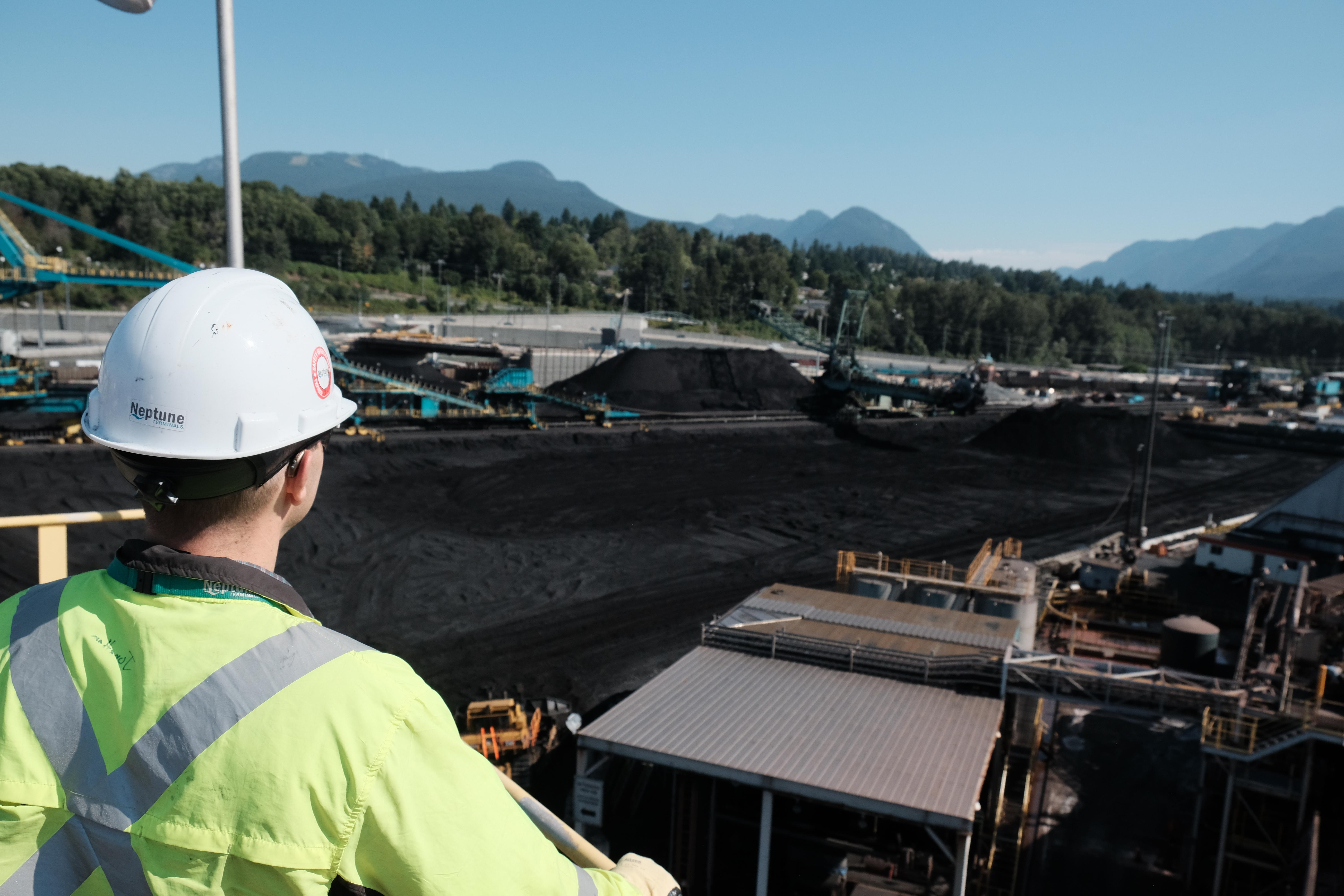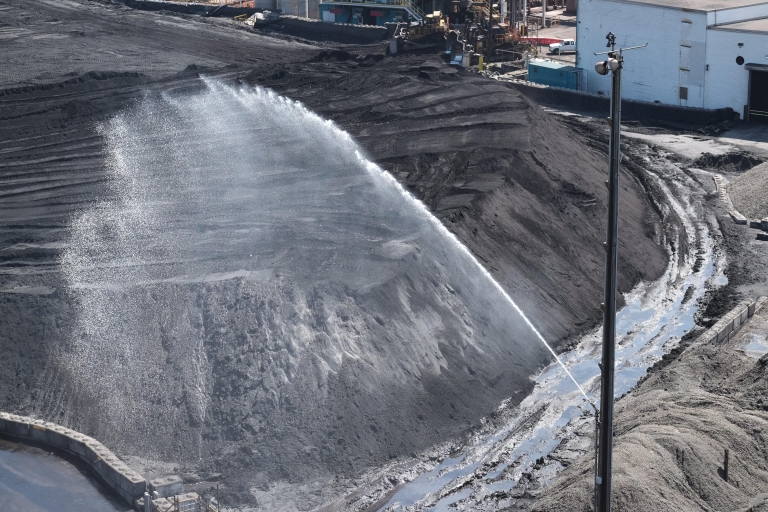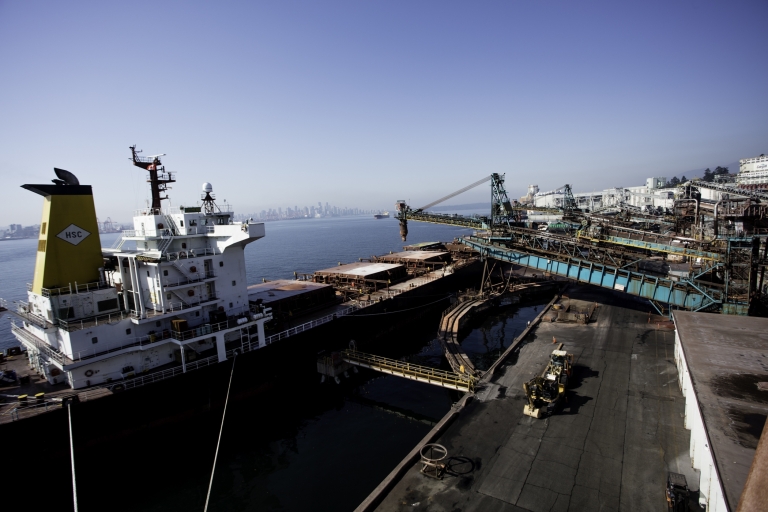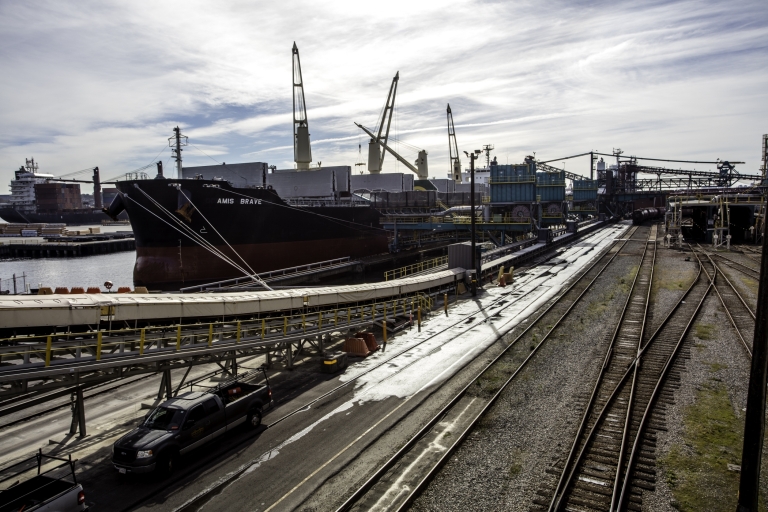
Neptune Terminals is committed to protecting the environment and minimizing the impact of our operations on the community.
We employ the latest technology and best practices throughout our site to reduce emissions, minimize noise and light impacts on the community and balance water conservation with dust mitigation.

Water
Water is used at our terminal to mitigate dust from our steelmaking coal handling and storage, and to wash equipment, vehicles and roadways - in large part to ensure dust does not leave our facility. We balance these requirements with efforts to conserve and recycle water and currently recycle approximately 5.5 million litres of water each year. For more information on how we use water, read our environmental systems for products page. All water used is treated before it leaves the site, with steelmaking coal water and potash water collected and treated separately.

Air Quality
Managing air quality has two components: reducing dust (particulate matter or PM) associated with product handling and reducing carbon emissions associated with our operations.
Air quality standards for Neptune are set through a permit issued by Metro Vancouver. Neptune meets and where possible exceeds these regulatory air emissions standards. Air quality is monitored continuously, using PM 2.5 and PM 10 monitors both on our site and at several locations throughout the community. Data from these monitoring stations is reported regularly to the regulator. These can be seen on our Air Quality Reports page.
Metro Vancouver also offers live, detailed air quality reporting on a regional air map, with two stations for the North Vancouver area.
For specific information on the equipment we use to manage emissions on our potash and steelmaking coal systems, read our environmental systems for products page.
Neptune has been measuring and seeking to reduce our carbon emissions since 2011. We are continuously improving the equipment and vehicles we use on site, and annually auditing and developing plans to further reduce our footprint. For example, one of the advancements we’ve made is the introduction of electric railcar positioning equipment. Coal rail cars are moved around our site using an electric indexer, as an alternative to diesel locomotives. We have also purchased three N-ViroMotive engines - Ultra Low-Emission Technology locomotives used to move potash rail cars on Neptune’s loop tracks. These engines use 25% less fuel, result in significantly reduced emissions, and are much quieter.

Noise Management
We employ the latest technology to minimize noise impacts on the community, and to ensure our operations and construction activities are always well within decibel levels set out in City of North Vancouver bylaws. Noise monitoring is done continuously on our site and at adjacent locations in the neighbourhood close to our terminal. We also commission an annual study of background noise levels in the community and the noise impact of our operations.
Rail: Trains coming to Neptune enter our site directly from the rail bridge, eliminating the need for whistling at level crossings. Once on our site, we use track lubrication to reduce rail squeal, and can minimize shunting because the trains are unit trains, carrying only one product.
Mobile Equipment: Back up alarms on our bulldozers and other mobile equipment have been switched to white noise alarms, which provide effective safety controls but are less disruptive than traditional beeping alarms.